by Joanne Ivancic* (Advanced Biofuels USA) For the US agricultural community, having a field day gives farmers and others in the agricultural products value chain the opportunity not only for hands-on learning about new crops and new technologies or about old problems and improving solutions, but also for networking and sharing thoughts, questions and ideas. Converting residual hemp biomass to the building blocks of biofuels and other bioproducts was part of the presentations at this field day.
As part of that tradition, on July 30, the University of Maryland Eastern Shore, an 1890 Land Grant historically Black university (HBCU), held the first of three scheduled field days about a topic of rising interest: hemp cultivation and use.
In the welcome shade of a near-by tree, Dr. Moses Kairo, Dean of the School of Agricultural and Natural Sciences, greeted the participants, outlined the program and discussed how this program fits into the traditions of both an HBCU and a Land Grant school.
Renewed Life for an Old Crop
As Dr. Sadanand Dhekney, Associate Professor of Plant Breeding, explained, since the 1930s in the US, hemp cultivation has been restricted along with marijuana/cannabis which is classified as a federally controlled substance with severe penalties for its production, possession and use. Therefore, although the plant itself is certainly not new, its cultivation and breeding for medical (CBD (cannabinoids) and “medical marijuana”) uses or for other purposes such as use of its fiber, seeds or biomass is just emerging.
Throughout the day, Dhekney and other speakers repeatedly reinforced the need for innovation and discovery about hemp, whether talking about pests, diseases and weed management or discussing use of the various parts of the plants. They also provided hands-on lessons about each of these topics as the attendees walked the university’s hemp research fields.
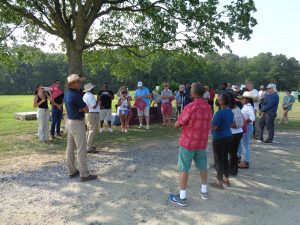 Dr. Moses Kairo (white shirt) and Dr. Sadanand Dhekney (blue shirt) provide information about the UMES industrial hemp program in the cool shade before heading for the open fields.
Dr. Moses Kairo (white shirt) and Dr. Sadanand Dhekney (blue shirt) provide information about the UMES industrial hemp program in the cool shade before heading for the open fields.
The UMES Industrial Hemp Pilot Research Program, in its 2021 Field Variety Trial, includes 50 varieties with 10 individual plants of each variety planted in about an acre plot on the UMES agricultural campus. These varieties were planted in mixed combinations in 10 rows of 50 plants each using standard research methods for variety trials. This technique was similar to the UMES field trial a few years ago testing energy beets as a possible renewable jetfuel feedstock and reported on here.
The purpose of this field trial is “to obtain information that will better inform Maryland’s hemp farmers on how to grow, when to harvest and what yields to expect from a hemp crop.”
Growing Interest
The number of interested farmers and others necessary to creating a new industry is growing.
When medical marijuana production and use was decriminalized and regulated in Maryland a few years ago, industrial hemp regulations were also created and required farmers interested in growing this crop to be enrolled in the Maryland Hemp Research Pilot Program which was available for growers interested in partnering with an institute of higher education or the Maryland Department of Agriculture for research purposes.
In 2020, the Maryland Department of Agriculture adopted new regulations that expand the state’s industrial hemp program and establish industrial hemp as an agricultural commodity.
Now, Maryland growers interested in growing hemp have the opportunity to participate in two programs, the Maryland Hemp Farming Program or the Maryland Hemp Research Pilot Program. The new Maryland Hemp Farming Program is open to growers who want to produce and cultivate hemp for commercial purposes.
UMES, being an agricultural school with a respected pharmacy program, was a natural resource for these entrepreneurs and began its program with six partners in 2019. It has grown to nine partners in 2021 and has developed connections to hemp and cannabis growers from the Eastern Shore through the agricultural areas near Washington, DC and Baltimore to the Western Maryland mountains.
The full program extends from research on growing to processing, marketing and selling. For example, Erik Lindsay, the Variety Trial Coordinator, spoke about evaluation of the various varieties for cannabinoid production. The buds from last year’s hemp crop were processed into CBD that was donated to the university and used with reported good results by individuals suffering from cancer and mobility difficulties.
In-Person Observations in the Field
In the field, Dr. Simon Zebelo, Associate Professor of Entomology, talked about insect pest management, as he guided participants through the field pointing out examples of pests and their destruction. He also had small containers to pass around with examples of the sucking insects and chewing insects in different stages of their lives.
He explained how a particular worm/caterpillar after feasting on corn and soybeans will move to near-by hemp fields. The timing is perfect for them. Once the corn and soybeans are harvested, the hemp buds are developing so that the worms now move to them to lay eggs in the heart of the hemp flower. The worms hatch in a lovely spot where their mothers have left them with plenty of nourishment. Not only does this damage the buds from being eaten from the inside out, but the critters also leave their remains and excrement in them posing serious problems for the UMES researchers to study.
Dr. Behnam Khatabi, Associate Professor of Plant Pathology, pointed out evidence of various pathogens and diseases and explained how they are studied and managed with other crops.
For example, it is understood that plants can carry viruses in their seeds; thus, it is important for growers to purchase and use only seeds that are certified pathogen-free.
Another way to try to avoid this problem is to grow from tissue cultures, commonly referred to as cloning. This requires taking small parts of known healthy plants and cultivating them in growing rooms or green houses until they are strong enough to plant in fields.
Powdery mildew is a particular problem on the humid Eastern Shore. Grey mold (Botrytis cinerea) along with Fusarium wilt and root rot are common diseases identified as especially destructive pathogens, referred to by Khatabi as the potential “killers of the hemp and cannabis industry.”
The long-term goal of UMES research is to identify fungal pathogens attacking the hemp plants in Maryland and to introduce clean pathogen-free plant material.
Just as the hemp growers don’t want neighboring corn and soybean fields to share their pathogens, they don’t want to share their diseases either. UMES is working to identify best practices and products that might be able to address these challenges.
And, challenges they are because at this time, as Zebelo, Khatabi and other speakers noted, there are no registered pesticides or herbicides for hemp plants to help combat these invaders. They hope to remedy that in a year or so.
Michel Foland, the Agricultural Technician in charge of the hemp crop management, was thrilled to be working at UMES on these trials which he described as “vertically integrated” because they include not only agronomy, plant cultivation, harvesting and pest and disease management. They also include the development and production of multiple commercial products along with attention to market development and sales and business aspects throughout the value chain. And, as he noted, the extra reward of seeing what you have produced working to alleviate medical problems, “seeing it work.”
During an informal discussion, Foland gave examples of the value of this extensive collaboration among a variety of experts and departments. He noted the valuable exchange of information and observations from the people working on the medical products end of the value chain, and the back and forth conversations and investigations with those working on developing and measuring traits and challenges of the growing and harvested plants.
Beyond the Field: Production, Sale, Use of All Parts of the Plant
One particular benefit Foland mentioned that is unique to the hemp industry is to have analytical chemists constantly testing the plants to identify the levels of the cannabinoids as they develop over time, noting how that relates to the amount of sunlight and other factors related to the formation of these characteristics.
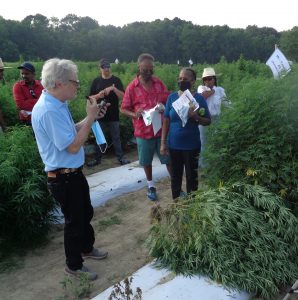 Bob Kozak explains option to convert residual biomass, like the uprooted male plant at his feet and stems and leaves not used for CBD production, as feedstock for biofuels or bioplastic.
Bob Kozak explains option to convert residual biomass, like the uprooted male plant at his feet and stems and leaves not used for CBD production, as feedstock for biofuels or bioplastic.
Not only is this important for identifying optimal harvest times to maximize CBD products; but also to understand the development of THC which is federally regulated. If the plant tests beyond a legal limit, the grower will be in violation of licenses and regulations with serious consequences. For those producing hemp for CBD, this is crucial information and a key part of the research program. In fact, at least one of the attendees at the field day represented this aspect of the hemp/cannabis business: regulatory compliance.
Atlantic Biomass’s Bob Kozak continued the discussion of products that can be made from hemp or cannabis production by introducing a potential co-product that many don’t initially consider: biofuels and bioproducts from waste or residual biomass.
Commercial design and testing for this UMES project is currently being funded by a Maryland Energy Innovation Seed Grant.
Since only the buds from female plants are used for medical products, the leaves and stems are left over. In addition, male plants in the field must be carefully uprooted and removed from the field to avoid pollination of female plants and to prevent production of unwanted seeds.
Atlantic Biomass has developed an enzymatic process that converts biomass into useful sugars: glucose, arabinose, xylose and galacturonic acid. Atlantic Biomass and UMES, in collaboration with Hood College in Frederick, MD and with researchers at the agricultural campus at The Ohio State University College of Food, Agriculture and Environmental Sciences are developing a system that garnered a lot of interest from attendees.
It takes that left over harvested hemp or cannabis biomass and processes it into the sugars that can then be used to make fuels such as renewable jetfuel (sustainable aviation fuel/SAF), ethanol or bio-polyethylene to make plastic.
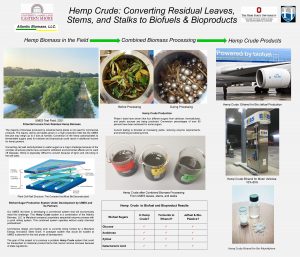 Illustration of project to convert residual hemp biomass to biocrude for fuel or chemicals. Click on image to enlarge.
Illustration of project to convert residual hemp biomass to biocrude for fuel or chemicals. Click on image to enlarge.
They are designing the system to be portable for use on-site at medical cannabis facilities. This brings not only the value of an additional product to that business, but also serves as a way to comply with strict regulations regarding cannabis waste management. Enzymatic conversion of leaves, and stems to sugars can be part of their required waste management program, thus part of a circular economy as well as a bioeconomy. A prototype system that would be located at UMES is planned for the next phase of the MEI grant.
To date, tests on hemp biomass have used samples available from the UMES research fields and greenhouses. As a result of networking at the field day, they are in discussions for testing samples from private fields in other parts of the state, as well.
In addition to being an additional source of income, this process could also serve as a way to manage risk should any of the challenges facing a grower or producer in a start-up industry with a volatile market. If the crop is ruined by weather, pests or diseases; if the crop exceeds the permitted level of THC; if the bottom falls out of the market; then obtaining some income from converting the waste and residue to a valuable, marketable product could cushion market downturns.
Looking to the Future
A number of attendees were still in the initial stages of developing business plans and investigating whether this is an option they want to choose as they look at farmland that they own or are considering buying. Many commented on the extraordinary value they were getting from hearing not only about the promise of this new and developing industry, but also about its agriculture-related growing pains and about realistic, practical challenges they will face if they get into this business.
Even in the 90 degree heat, people did have a field day learning, sharing thoughts and questions, and getting to know others who shared their interests in tackling a new, promising adventure.
As one of the UMES speakers noted, they know a whole lot more than they did three years ago when they started the program, including having gained a greater appreciation of what they don’t know and the myriad of problems and opportunities that merit more attention.
*Joanne Ivancic serves as executive director of Advanced Biofuels USA.
Updated 8/4/2021.
Cannabis Waste Disposal for Growers, Manufacturers & Retailers (Triumvirate Environmental)
FREQUENTLY ASKED QUESTIONS: Maryland’s Hemp Farming Program & Hemp Research Pilot Program (Maryland Department of Agriculture)
2021 Maryland Hemp Program (Maryland Department of Agriculture)
UMES Hemp Field Tours — July 30, August 27 and September 30, 2021 — Princess Anne, MD (University of Maryland Eastern Shore)
Cannabis Waste Composting: New company collects marijuana waste from growers, processors and dispensaries, and composts the material in an in-vessel system. (BioCycle Magazine)
UMES' industrial hemp field trial provides farmers with knowledge for successful cultivation (University of Maryland Eastern Shore)
UMES hemp field trial encourages new cash crop for farmers (Bay to Bay News/Salisbury Independent)
How HBCUs Are Preparing Environmental Science and Environmental Engineering Students to Tackle Climate Change (U.S. Black Engineer page 37)
The Class Of Lawyers Now Known As Cannabis Lawyers (Global Hemp Association; includes VIDEO)
Nearly 55,000 articles in our online library!
Use the categories and tags listed below to access the nearly 50,000 articles indexed on this website.
Advanced Biofuels USA Policy Statements and Handouts!
- For Kids: Carbon Cycle Puzzle Page
- Why Ethanol? Why E85?
- Just A Minute 3-5 Minute Educational Videos
- 30/30 Online Presentations
- “Disappearing” Carbon Tax for Non-Renewable Fuels
- What’s the Difference between Biodiesel and Renewable (Green) Diesel? 2020 revision
- How to De-Fossilize Your Fleet: Suggestions for Fleet Managers Working on Sustainability Programs
- New Engine Technologies Could Produce Similar Mileage for All Ethanol Fuel Mixtures
- Action Plan for a Sustainable Advanced Biofuel Economy
- The Interaction of the Clean Air Act, California’s CAA Waiver, Corporate Average Fuel Economy Standards, Renewable Fuel Standards and California’s Low Carbon Fuel Standard
- Latest Data on Fuel Mileage and GHG Benefits of E30
- What Can I Do?
Donate
DonateARCHIVES
- February 2026
- January 2026
- December 2025
- November 2025
- October 2025
- September 2025
- August 2025
- July 2025
- June 2025
- May 2025
- April 2025
- March 2025
- February 2025
- January 2025
- December 2024
- November 2024
- October 2024
- September 2024
- August 2024
- July 2024
- June 2024
- May 2024
- April 2024
- March 2024
- February 2024
- January 2024
- December 2023
- November 2023
- October 2023
- September 2023
- August 2023
- July 2023
- June 2023
- May 2023
- April 2023
- March 2023
- February 2023
- January 2023
- December 2022
- November 2022
- October 2022
- September 2022
- August 2022
- July 2022
- June 2022
- May 2022
- April 2022
- March 2022
- February 2022
- January 2022
- December 2021
- November 2021
- October 2021
- September 2021
- August 2021
- July 2021
- June 2021
- May 2021
- April 2021
- March 2021
- February 2021
- January 2021
- December 2020
- November 2020
- October 2020
- September 2020
- August 2020
- July 2020
- June 2020
- May 2020
- April 2020
- March 2020
- February 2020
- January 2020
- December 2019
- November 2019
- October 2019
- September 2019
- August 2019
- July 2019
- June 2019
- May 2019
- April 2019
- March 2019
- February 2019
- January 2019
- December 2018
- November 2018
- October 2018
- September 2018
- August 2018
- July 2018
- June 2018
- May 2018
- April 2018
- March 2018
- February 2018
- January 2018
- December 2017
- November 2017
- October 2017
- September 2017
- August 2017
- July 2017
- June 2017
- May 2017
- April 2017
- March 2017
- February 2017
- January 2017
- December 2016
- November 2016
- October 2016
- September 2016
- August 2016
- July 2016
- June 2016
- May 2016
- April 2016
- March 2016
- February 2016
- January 2016
- December 2015
- November 2015
- October 2015
- September 2015
- August 2015
- July 2015
- June 2015
- May 2015
- April 2015
- March 2015
- February 2015
- January 2015
- December 2014
- November 2014
- October 2014
- September 2014
- August 2014
- July 2014
- June 2014
- May 2014
- April 2014
- March 2014
- February 2014
- January 2014
- December 2013
- November 2013
- October 2013
- September 2013
- August 2013
- July 2013
- June 2013
- May 2013
- April 2013
- March 2013
- February 2013
- January 2013
- December 2012
- November 2012
- October 2012
- September 2012
- August 2012
- July 2012
- June 2012
- May 2012
- April 2012
- March 2012
- February 2012
- January 2012
- December 2011
- November 2011
- October 2011
- September 2011
- August 2011
- July 2011
- June 2011
- May 2011
- April 2011
- March 2011
- February 2011
- January 2011
- December 2010
- November 2010
- October 2010
- September 2010
- August 2010
- July 2010
- June 2010
- May 2010
- April 2010
- March 2010
- February 2010
- January 2010
- December 2009
- November 2009
- October 2009
- September 2009
- August 2009
- July 2009
- June 2009
- May 2009
- April 2009
- March 2009
- February 2009
- January 2009
- December 2008
- November 2008
- October 2008
- September 2008
- August 2008
- July 2008
- June 2008
- May 2008
- April 2008
- March 2008
- February 2008
- January 2008
- December 2007
- November 2007
- October 2007
- September 2007
- August 2007
- June 2007
- February 2007
- January 2007
- October 2006
- April 2006
- January 2006
- April 2005
- December 2004
- November 2004
- December 1987
CATEGORIES
- About Us
- Advanced Biofuels Call to Action
- Aviation Fuel/Sustainable Aviation Fuel (SAF)
- BioChemicals/Renewable Chemicals
- BioRefineries/Renewable Fuel Production
- Business News/Analysis
- Cooking Fuel
- Education
- 30/30 Online Presentations
- Competitions, Contests
- Earth Day 2021
- Earth Day 2022
- Earth Day 2023
- Earth Day 2024
- Earth Day 2025
- Executive Training
- Featured Study Programs
- Instagram TikTok Short Videos
- Internships
- Just a Minute
- K-12 Activities
- Mechanics training
- Online Courses
- Podcasts
- Scholarships/Fellowships
- Teacher Resources
- Technical Training
- Technician Training
- University/College Programs
- Events
- Coming Events
- Completed Events
- More Coming Events
- Requests for Speakers, Presentations, Posters
- Requests for Speakers, Presentations, Posters Completed
- Webinars/Online
- Webinars/Online Completed; often available on-demand
- Federal Agency/Executive Branch
- Agency for International Development (USAID)
- Agriculture (USDA)
- Commerce Department
- Commodity Futures Trading Commission
- Congressional Budget Office
- Defense (DOD)
- Air Force
- Army
- DARPA (Defense Advance Research Projects Agency)
- Defense Logistics Agency
- Marines
- Navy
- Education Department
- Energy (DOE)
- Environmental Protection Agency
- Federal Energy Regulatory Commission (FERC)
- Federal Reserve System
- Federal Trade Commission
- Food and Drug Administration
- General Services Administration
- Government Accountability Office (GAO)
- Health and Human Services (HHS)
- Homeland Security
- Housing and Urban Development (HUD)
- Interior Department
- International Trade Commission
- Joint Office of Energy and Transportation
- Justice (DOJ)
- Labor Department
- National Academies of Sciences Engineering Medicine
- National Aeronautics and Space Administration
- National Oceanic and Atmospheric Administration
- National Research Council
- National Science Foundation
- National Transportation Safety Board (NTSB)
- Occupational Safety and Health Administration
- Overseas Private Investment Corporation
- Patent and Trademark Office
- Securities and Exchange Commission
- State Department
- Surface Transportation Board
- Transportation (DOT)
- Federal Aviation Administration
- National Highway Traffic Safety Administration (NHTSA)
- Pipeline and Hazardous Materials Safety Admin (PHMSA)
- Treasury Department
- U.S. Trade Representative (USTR)
- White House
- Federal Legislation
- Federal Litigation
- Federal Regulation
- Feedstocks
- Agriculture/Food Processing Residues nonfield crop
- Alcohol/Ethanol/Isobutanol
- Algae/Other Aquatic Organisms/Seaweed
- Atmosphere
- Carbon Dioxide (CO2)
- Field/Orchard/Plantation Crops/Residues
- Forestry/Wood/Residues/Waste
- hydrogen
- Manure
- Methane/Biogas
- methanol/bio-/renewable methanol
- Not Agriculture
- RFNBO (Renewable Fuels of Non-Biological Origin)
- Seawater
- Sugars
- water
- Funding/Financing/Investing
- grants
- Green Jobs
- Green Racing
- Health Concerns/Benefits
- Heating Oil/Fuel
- History of Advanced Biofuels
- Infrastructure
- Aggregation
- Biofuels Engine Design
- Biorefinery/Fuel Production Infrastructure
- Carbon Capture/Storage/Use
- certification
- Deliver Dispense
- Farming/Growing
- Precursors/Biointermediates
- Preprocessing
- Pretreatment
- Terminals Transport Pipelines
- International
- Abu Dhabi
- Afghanistan
- Africa
- Albania
- Algeria
- Angola
- Antarctica
- Arctic
- Argentina
- Armenia
- Aruba
- Asia
- Asia Pacific
- Australia
- Austria
- Azerbaijan
- Bahamas
- Bahrain
- Bangladesh
- Barbados
- Belarus
- Belgium
- Belize
- Benin
- Bermuda
- Bhutan
- Bolivia
- Bosnia and Herzegovina
- Botswana
- Brazil
- Brunei
- Bulgaria
- Burkina Faso
- Burundi
- Cambodia
- Cameroon
- Canada
- Canary Islands
- Caribbean
- Central African Republic
- Central America
- Chad
- Chile
- China
- Colombia
- Congo
- Congo, Democratic Republic of
- Costa Rica
- Croatia
- Cuba
- Cyprus
- Czech Republic
- Denmark
- Dominican Republic
- Dubai
- Ecuador
- Egypt
- El Salvador
- Equatorial Guinea
- Estonia
- Eswatini/Swaziland
- Ethiopia
- European Union (EU)
- Fiji
- Finland
- France
- French Guiana
- Gabon
- Georgia
- Germany
- Ghana
- Global South
- Greece
- Greenland
- Grenada
- Guatemala
- Guinea
- Guyana
- Haiti
- Honduras
- Hong Kong
- Hungary
- Iceland
- India
- Indonesia
- Iran
- Iraq
- Ireland
- Israel
- Italy
- Ivory Coast
- Jamaica
- Japan
- Jersey
- Jordan
- Kazakhstan
- Kenya
- Korea
- Kosovo
- Kuwait
- Laos
- Latin America
- Latvia
- Lebanon
- Liberia
- Lithuania
- Luxembourg
- Macedonia
- Madagascar
- Malawi
- Malaysia
- Maldives
- Mali
- Malta
- Marshall Islands
- Mauritania
- Mauritius
- Mexico
- Middle East
- Moldova
- Monaco
- Mongolia
- Morocco
- Mozambique
- Myanmar/Burma
- Namibia
- Nepal
- Netherlands
- New Guinea
- New Zealand
- Nicaragua
- Niger
- Nigeria
- North Africa
- North America
- North Korea
- Northern Ireland
- Norway
- Oman
- Pakistan
- Panama
- Papua New Guinea
- Paraguay
- Peru
- Philippines
- Poland
- Portugal
- Qatar
- Republic of
- Romania
- Russia
- Rwanda
- Saudi Arabia
- Scotland
- Senegal
- Serbia
- Sierra Leone
- Singapore
- Slovakia/Slovak Republic
- Slovenia
- Solomon Islands
- South Africa
- South America
- South Korea (Republic of Korea)
- South Sudan
- Southeast Asia
- Spain
- Sri Lanka
- Sudan
- Suriname
- Sweden
- Switzerland
- Taiwan
- Tanzania
- Thailand
- Timor-Leste
- Togo
- Trinidad and Tobago
- Tunisia
- Turkey
- Uganda
- UK (United Kingdom)
- Ukraine
- United Arab Emirates UAE
- Uruguay
- Uzbekistan
- Vatican
- Venezuela
- Vietnam
- Wales
- Zambia
- Zanzibar
- Zimbabwe
- Marine/Boat Bio and Renewable Fuel/MGO/MDO/SMF
- Marketing/Market Forces and Sales
- Opinions
- Organizations
- Original Writing, Opinions Advanced Biofuels USA
- Policy
- Presentations
- Biofuels Digest Conferences
- DOE Conferences
- Bioeconomy 2017
- Bioenergy2015
- Biomass2008
- Biomass2009
- Biomass2010
- Biomass2011
- Biomass2012
- Biomass2013
- Biomass2014
- DOE Project Peer Review
- Other Conferences/Events
- R & D Focus
- Carbon Capture/Storage/Use
- Co-Products
- Feedstock
- Logistics
- Performance
- Process
- Vehicle/Engine/Motor/Aircraft/Boiler/Ship
- Yeast
- Railroad/Train/Locomotive Fuel
- Resources
- Books Web Sites etc
- Business
- Definition of Advanced Biofuels
- Find Stuff
- Government Resources
- Scientific Resources
- Technical Resources
- Tools/Decision-Making
- Rocket/Missile Fuel
- Sponsors
- States
- Alabama
- Alaska
- Arizona
- Arkansas
- California
- Colorado
- Connecticut
- Delaware
- Florida
- Georgia
- Hawai'i
- Idaho
- Illinois
- Indiana
- Iowa
- Kansas
- Kentucky
- Louisiana
- Maine
- Maryland
- Massachusetts
- Michigan
- Midwest
- Minnesota
- Mississippi
- Missouri
- Montana
- Native American tribal nation lands
- Nebraska
- Nevada
- New Hampshire
- New Jersey
- New Mexico
- New York
- North Carolina
- North Dakota
- Ohio
- Oklahoma
- Oregon
- Pennsylvania
- Puerto Rico
- Rhode Island
- South Carolina
- South Dakota
- Tennessee
- Texas
- Utah
- Vermont
- Virginia
- Washington
- Washington DC
- West Coast
- West Virginia
- Wisconsin
- Wyoming
- Sustainability
- Uncategorized
- What You Can Do
tags
© 2008-2023 Copyright Advanced BioFuels USA. All Rights reserved.
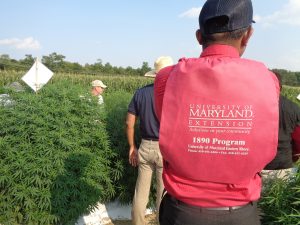
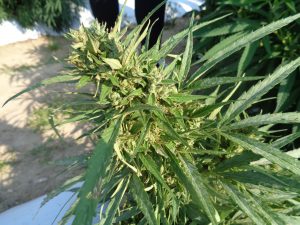
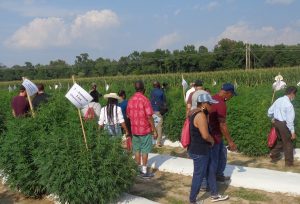
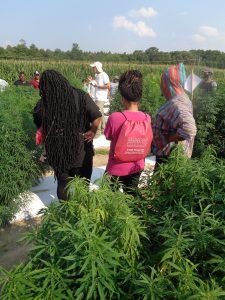
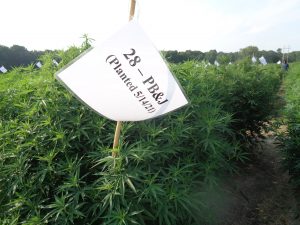
.jpg)





Comments are closed.